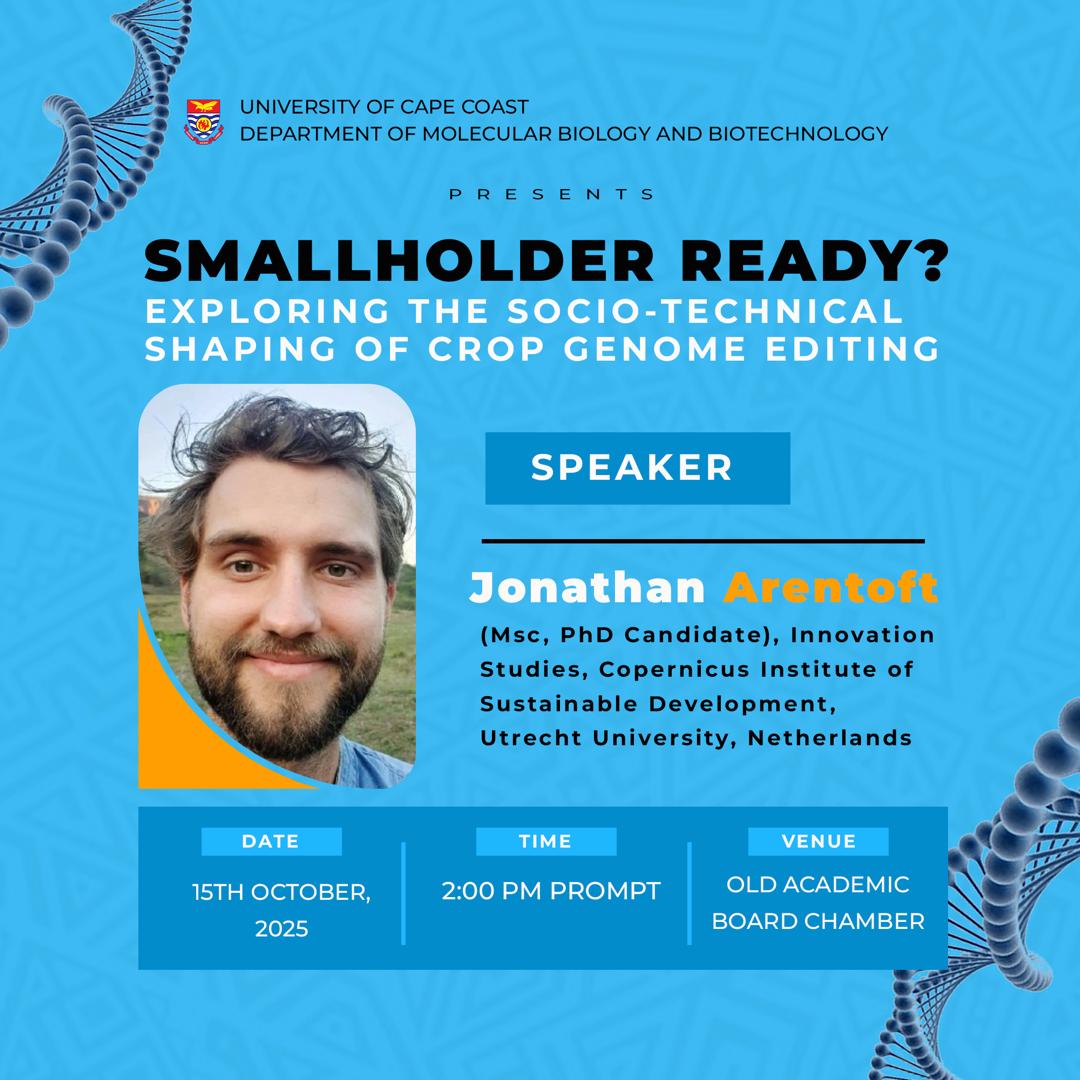This presentation will highlight the growing movement to use crop genome editing to benefit smallholder farmers to enhance food security in the Global South. While the technology holds significant promise, with dozens of projects already underway and the first gene-edited crops being approved for market in India and Philippines, its real-life impact on African smallholders remains uncertain and largely unrealized.
While this uncertainty is often framed by the biotechnology community as pre-dominantly a challenge of mere "public acceptance" or "science education", the presenter argues that this fails to attend to legitimate public concerns with the technology and its potential applications. Drawing on insights from Science and Technology Studies (STS), “I shift the focus upstream to analyze the socio-technical systems—including funding, economic interests, and researchers' assumptions—that fundamentally shape which challenges are addressed and what kinds of technologies are developed”. This STS-lens allows asking critical questions about the current "smallholder readiness" of crop genome editing.
Finally, the presentation will focus on what it means for crop genome editing to be Africanised or African-led. By analyzing the emerging discourses, visions, and operationalizations of African-led science in both Kenya and Ghana, this research seeks to critically enrich ongoing discussions on how plant sciences and biotechnology can be responsive to the needs and concerns of smallholder farmers and rural communities.


